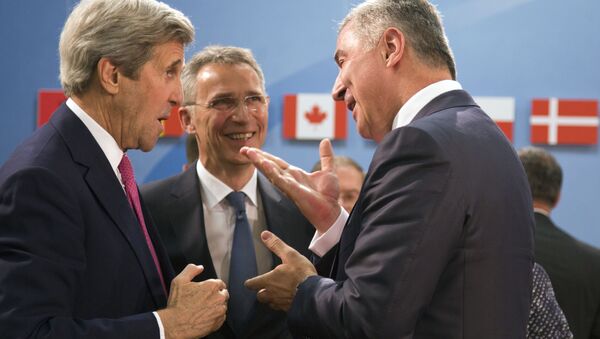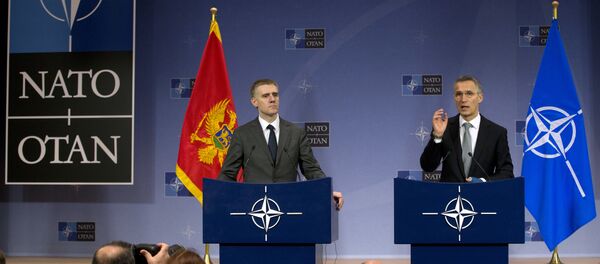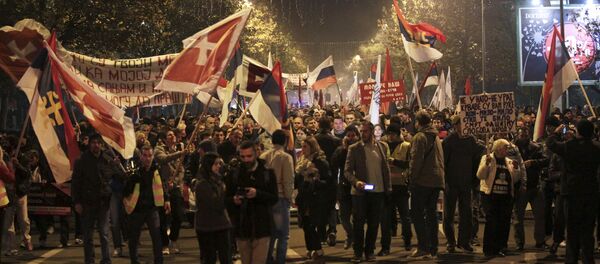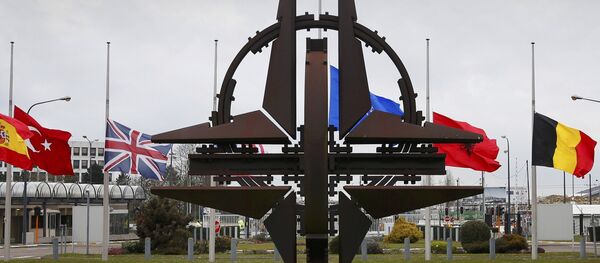On Thursday, Dukanovic signed Montenegro's accession protocol with NATO, a move Russian NATO envoy Alexander Grushko warned would weaken regional security and deepen divisions within Europe. For its part, German newspaper Deutsche Wirtschafts Nachrichten noted that the move was aimed at encircling Russia, and might lead to the destabilization of the European continent.
Disregarding public opposition, Dukanovic, who has been at the political helm in the country since 1991, told Politico Europe that he doesn't give much thought to Moscow's concerns either.
Saying that he understands that Moscow "is particularly sensitive to NATO's expansion," the politician emphasized that Podgorica would nonetheless "remain on this path [toward EU and NATO accession] until we reach our destination."
Pointing to the region's civil-war-scarred past, and warning that the countries in the Balkan region have an insufficient "level of economic and democratic development," which "does not allow political flexibility or cultural diversity to flourish," Dukanovic suggested that the solution to that dilemma is "development."
"And on what level is development possible? On the level that makes the prospect of joining EU and NATO a realistic goal for nations. Don't keep us in the past. Don't impose the old matrix on us because the consequences will be painful for Europe. When trouble starts in the Western Balkans, Europe needs to send money, lots of it. It has to put the lives of its soldiers on the line, along with American ones."
Shrugging off Russian concerns by suggesting that Moscow would simply have to accept Podgorica's strategic choice, Dukanovic assured Politico Europe that he is not very concerned about the prospect of losing Russian investment either, in spite of the fact that Russia has consistently been ranked among the top five foreign investors in the Montenegran economy, with official direct investments totaling $1.4 billion, much of that in real estate, and indirect investments via sister companies in third countries raising that figure even higher.
"I'd say Russia (as a state) does not have significant economic investments in Montenegro. There are many Russian citizens who own property on the coast where they spend their vacation, and that's about it," the politician insisted.
Commenting on the opposition of his fellow countrymen and women to joining the alliance, Dukanovic admitted, presumably referring to NATO's 1999 bombing campaign, that "like the rest of the Western Balkan nations, history is a burden for Montenegro." He added that nevertheless, he believes that accession will help the country "elevate the standard of living and catch up with Europe." Support for NATO, he emphasized, is support "for a new system of values, for market economy, democracy and the rule of law."





